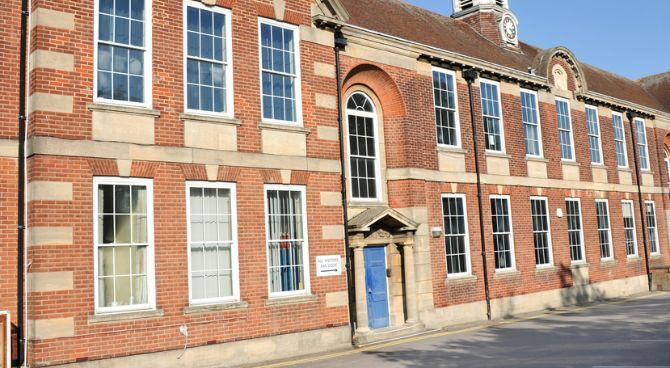Theresa May lifts ban on new grammar schools
Theresa May has unveiled plans for sweeping education reform in England including the news that she intends to lift the restrictions on grammar school expansion.

Grammar school expansion
After a week of press leaks and speculation about the Prime Minister’s stance on the expansion of grammar schools, Mrs May has set out a clear set of proposals for her vision of the future of academic selection in the country’s education system.Grammar schools are a controversial and emotive subject. Many believe that they offer a great opportunity for bright and able pupils to excel in an environment best suited to their talents; while others, such as Shadow Education Secretary Angela Rayner, believe that the system can “entrench inequality”, due to the ability of more wealthy parents to afford tutoring to pass entrance examinations.Grammar schools are popular with most relocating families however, as they typically offer an excellent standard of education. Many grammar school students continue to perform exceptionally well at GCSE, A Level and the International Baccalaureate and, as a consequence, many transfer to top university destinations both in the UK and overseas.Academic selection
And it is this level of academic excellence that Theresa May wants to offer more children in the UK and this formed the backbone of the raft of reforms she announced today.Mrs May said that she would like to “radically increase the number of good school places – in order to ensure that all children have the best possible start in life.”“I want to give everyone the opportunity to develop their talents, and then go as far as their talents can take them, regardless of their background,” Mrs May told the assembled journalists at the British Academy in London.Government relaxes rules on academic selection
This will include relaxing the restrictions on new or expanding selective schools – as well as allowing existing non-selective schools to become selective in some circumstances.“For too long we have tolerated a system that contains an arbitrary rule preventing selective schools from being established – sacrificing children’s potential because of dogma and ideology,” said Mrs May. “The truth is that we already have selection in our school system – and its selection by house price, selection by wealth. That is simply unfair.”The Prime Minster explained that it would be simply “illogical to continue to make it illegal for good schools to expand”. As evidence to support this, Mrs May explained that 99 per cent of the country’s grammar schools are rated good or outstanding and that 80 per cent are rated as outstanding; this is in comparison to an equivalent 20 per cent in the state sector overall.What are Theresa May’s plans for education reform?
In order to deliver on the meritocratic education system that Mrs May set out in her speech, she announced that the government will publish a consultation on the following proposals:- Addressing the criticism that selective education is the preserve of those who can afford tutoring for the entrance tests or can afford the house prices in the catchment area – new or expanding grammars will be required to take a proportion of pupils from lower-income households, or establish a new, high-quality, non-selective free school.
- Grammars will be required to establish or sponsor a primary feeder school in an area with a high density of lower-income households or to sponsor a currently underperforming non-selective academy.
- Universities who want to charge higher fees should be required to set up a new school or sponsor an existing underperforming school.
Universities to play role in school reform
Under the new proposals, universities will be expected to use their educational expertise to do more to raise standards in schools.Theresa May set out some of examples of how these arrangements are already working in practice. For example, King’s College London opened a specialist sixth form college – King’s College London Mathematics School – that takes young people from across London who can demonstrate exceptional mathematics talent. The results have obviously been outstanding with a reported 100 per cent of students receiving an A or A* grade in GCSE maths.Extra government funding for grammar schools
The government will make £50 million per year of extra funding available to facilitate the expansion of grammar schools in the country.For families seeking good school places in their new relocation destination, the promise of an increase of quality school provision can only be a good thing, but the decision can be a tricky one when faced with so many diverse school choices.For more information on recent reforms in the English education system, look out for the Autumn 2016 issue of Relocate magazine.
Relocate Global: Helping families make school choices
Relocate Global’s new annual Guide to International Education & Schools provides a wealth of advice to anyone searching for a new school in the UK and in an international setting, and offers insights into what it takes to make the right school choice.
©2026 Re:locate magazine, published by Profile Locations, Spray Hill, Hastings Road, Lamberhurst, Kent TN3 8JB. All rights reserved. This publication (or any part thereof) may not be reproduced in any form without the prior written permission of Profile Locations. Profile Locations accepts no liability for the accuracy of the contents or any opinions expressed herein.






























